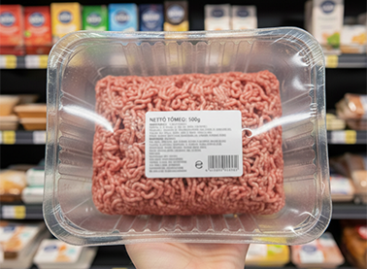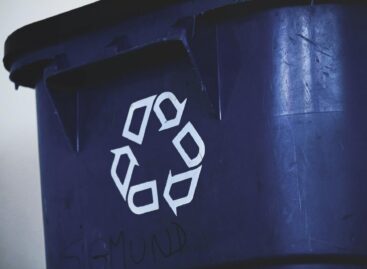More questions than answers in the packaging sector
On 30 November 2022, the European Commission published a draft regulation on packaging and packaging waste, the so-called PPWR Regulation. The legislative process is ongoing and expected to enter into force at the end of 2024.
This article is available for reading in Trade magazin 2023/12-01
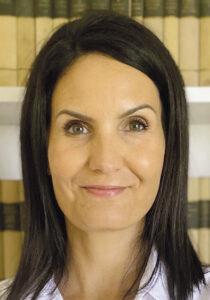
Zsuzsanna Karácsonyi
sales manager
Metsä Board Hungary
“One year after entry into force, the regulation will become a law in EU member states. The main objectives of the PPWR Regulation are to reduce packaging waste and avoid unnecessary packaging”, says Zsuzsanna Karácsonyi, sales manager of Metsä Board Hungary.
Expanding portfolio
Metsä Board Hungary’s “360 Services” portfolio offers significant added value to customers working with the company: they can achieve their goals faster, make informed decisions about the right board quality, increase production efficiency, reduce waste and get their products to the market faster. The company’s latest innovation is MetsäBoard Prime FBB EB, an easily recyclable and compostable barrier board. Its dispersion-coated surface prevents grease and moisture from penetrating and leaking in, and offers a solution for reducing plastic use.
EPR has caused a headache

Zoltán Szőnyi
sales director
Dunapack
According to Zoltán Szőnyi, sales director of Dunapack Kft., the biggest challenge for the industry at the moment is the introduction of the extended producer responsibility (EPR) system, which entered into force on 1 July 2023.
“EPR fees have been set at an unrealistically high level, which is unusual even by European standards, and will lead to a significant increase in the cost of packaging materials”,
he added.
In the case of paper packaging, the charges have increased by 9.1 times compared to the previous environmental protection product fee.
New knowledge, decades of expertise
Dunapack has always been a leader in developing modern and innovative packaging materials. They are proud to serve customers with the biggest construction team, with decades of expertise. Dunapack can meet any graphic requirement with up to 7-colour flexo printing, and their solutions also include the application of a tear tape, allowing customers to open boxes with ease. The company’s new factory in Dunavarsány is the most modern plant in the segment in Central Europe. In addition to state-of-the-art machinery, the factory is also an innovation in terms of process optimisation.
There is a solution, all you need to do is look for it

György Kolozsvári
sales director
STI Petőfi Nyomda
György Kolozsvári, sales director of STI Petőfi Nyomda Kft. believes that the EPR system doesn’t only affect the industry, but it causes the biggest problems for companies in the sector.
“It is important to think holistically! We need to produce materials, cardboards and papers that are lighter but stronger, more durable. We also have to look for innovative technological solutions to reduce the amount of material used per unit of volume”,
explains the sales director.
He also mentions that it makes him sad when he receives a product in a box three or four times the size of the product he ordered from an online shop, filled with paper.
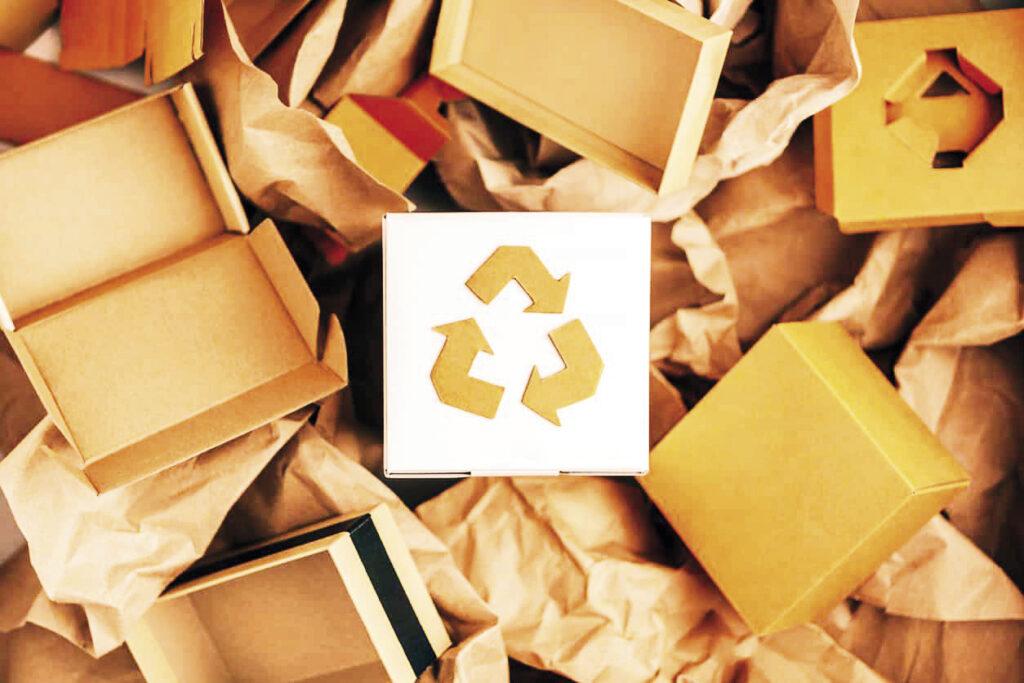
Of all packaging products, paper’s price has risen the most dramatically in the EPR regulation
Constant challenges
With the decline in purchasing power, there is a shift in the product portfolio – and in particular the FMCG market – towards cheaper products and/or a little smaller volumes.

Bart Dobbelaere
managing director
VPK
“Plus the packaging market is facing constant challenges in terms of cost reduction: we are witnessing a transition from offset to high level flexo printing, and from white to brown paper, and a reduction in the number of colours printed”,
adds Bart Dobbelaere, managing director of VPK.
Since the introduction of the EPR system, manufacturers have been trying to rationalise their packaging designs and reduce the amount of materials used.
Innovations tailored to user needs
In addition to sustainable packaging, VPK also guarantees the highest hygiene standards through its BRC:AA certification. Being one of the largest and fastest growing players in the European packaging market, they have access to a huge product database, so the company shares product innovations not only within the group, but also with customers. When it comes to services offered to the FMCG sector, they deal with each client individually.
“Today it is an essential customer requirement to get a high quality product, with fast and flexible service, for instance Just-In-Time delivery or Vendor Managed Inventory. Cost efficiency and multipurpose use are strengthening trends, and RONDO Kft. is able to produce twin-box type packaging too”,
informs Zsolt Miklós, managing director of Rondo Hullámkartongyártó Kft.
Robotics and automation
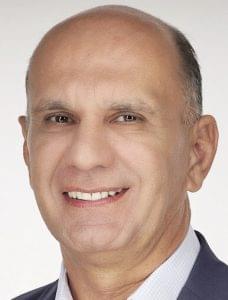
Zsolt Miklós
managing director
Rondo
Rondo Hullámkartongyártó Kft. designs, manufactures, sells and develops corrugated packaging products and systems, and offers related customer service activities. From 2023 they are using the SAP system, thus making interactive communication with customers possible, together with establishing EDI connections. RONDO Kft. sells the paper waste generated during production to a domestic raw material manufacturer, and the base paper produced from it is used to manufacture a new product. The managing director cited robotics as an innovation, as well as the use of automated material handling systems, reducing the need for human labour. //
Related news
2026: stricter EU rules and digital waste tracking
🎧 Hallgasd a cikket: Lejátszás Szünet Folytatás Leállítás Nyelv: Auto…
Read more >Related news
The Store of the Future opens again at the SIRHA Budapest exhibition! (Part 3)
🎧 Hallgasd a cikket: Lejátszás Szünet Folytatás Leállítás Nyelv: Auto…
Read more >Amikor a megszámlálhatatlan megszámlálhatóvá válik
🎧 Hallgasd a cikket: Lejátszás Szünet Folytatás Leállítás Nyelv: Auto…
Read more >New country director at the helm of JYSK Hungary
🎧 Hallgasd a cikket: Lejátszás Szünet Folytatás Leállítás Nyelv: Auto…
Read more >


